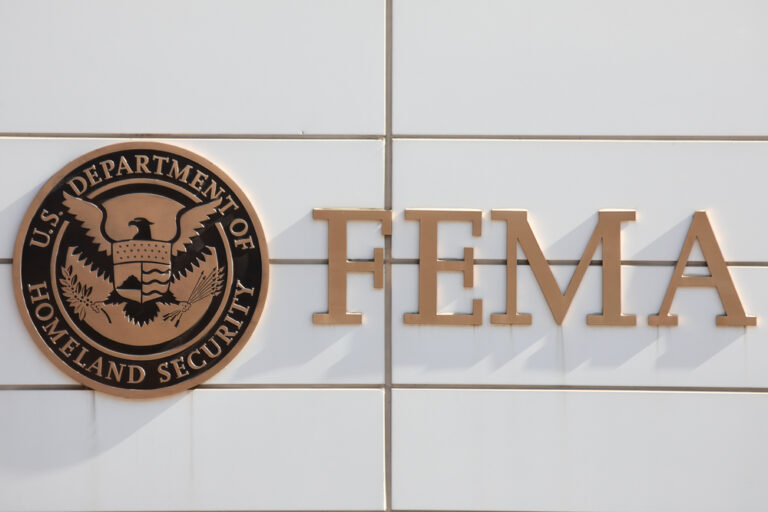Following up on a 2021 request under the Freedom of Information Act (FOIA), the Center for Biological Diversity (CBD) has filed suit against the Federal Emergency Management Agency (FEMA) and the Department of Homeland Security (DHS) for failing to release public records about the agency’s spending on energy-related projects and assistance to help communities rebuild after disasters.

“FEMA acknowledged receipt of the FOIA request in December 2021,” said CBD Attorney Augusta Wilson in an e-mail. “After repeated requests from the Center for updates, and notification by the [CBD] in June 2022 that FEMA was in violation of FOIA, FEMA asked for clarification of certain aspects of the request. The [CBD] provided the requested clarification. FEMA has indicated, again after multiple follow-up status requests by the [CBD], that the request has been sent out to program offices, but to date FEMA has not provided any records or provided any anticipated timetable for doing so.”
In gaining access to these records, the CBD expects to learn how much FEMA spends on fossil fuel-related projects compared with renewable energy alternatives.
“The public has a right to know how many billions of taxpayer dollars FEMA is spending to help prop up the fossil-fuel industrial complex and worsen the climate emergency,” Wilson said in a CBD press release. “Transparency is critical to pushing FEMA to rebuild communities with renewable and resilient energy. The agency should be leading the way to construct rooftop solar and storage, not doubling down on the dirty energy status quo.”
In its original FOIA request, the CBD requested all records related to:
- Addressing a transition from fossil fuels to renewable energy sources in connection with assistance provided under the Hazard Mitigation Grant Program, Building Resilient Infrastructure and Communities Program, Public Assistance Program, or other FEMA assistance programs;
- Detailing how much FEMA funding in fiscal years 2018, 2019, 2020, and 2021 was directed to the acquisition or use of fossil fuel infrastructure, including, but not limited to, coal and natural gas power plants and related infrastructure and fossil fuel-powered portable generators;
- Detailing how much FEMA funding in fiscal years 2018, 2019, 2020, and 2021 was directed to the acquisition of renewable energy resources, including rooftop or community solar installations, microgrids, storage, or other sources of electricity that do not rely on fossil fuels;
- Detailing how much FEMA funding in fiscal years 2018, 2019, 2020, and 2021 was directed to utilities, including the names of the utilities and how much they received;
- Detailing how much FEMA funding in fiscal years 2018, 2019, 2020, and 2021 was directed toward energy-efficiency initiatives, including weatherization or any other measures designed to improve home or business energy efficiency; and
- Detailing how much FEMA funding in fiscal years 2018, 2019, 2020, and 2021 was directed toward utility bill assistance, including heat, electricity, and water.
The request defined “records” as “documents, correspondence (including inter and/or intra-agency correspondence as well as correspondence with entities or individuals outside the federal government), emails including attachments, letters, notes, recordings, telephone records, telephone notes, telephone logs, text messages, chat messages, minutes, memoranda, comments, files, presentations, consultations, biological opinions, assessments, evaluations, schedules, papers published and/or unpublished, reports, studies, photographs and other images, data (including raw data, GPS or GIS data, UTM, LiDAR, etc.), maps, and/or all other responsive records, in draft or final form.”
In light of superstorms, such as the one that hit the United States in December 2022, which resulted in multiple deaths, a loss of power to millions of people, a breakdown in the power grid, and damages to fossil fuel plants, the CBD asserts that it is imperative that the federal government invest in renewable energy systems capable of withstanding climate-driven disasters.
“FEMA’s 2021 report, Resources for Climate Resilience, and the agency’s 2022-2026 strategic plan do not mention any efforts to reduce the agency’s reliance on fossil fuels to rebuild disaster-ravaged communities,” continues the CBD press release. “These investments include diesel generators, repairing furnaces and other fossil-fuel heating systems, and rebuilding fossil fuel-based power plants and transmission systems.”
“December’s catastrophic bomb cyclone is just the most recent evidence that communities are relying on FEMA more than ever,” said Wilson in the press release. “The agency has to rebuild reliable, less costly, carbon-free electric grids so they can withstand the next climate change-fueled disaster. By investing in more resilient power systems, FEMA can protect frontline communities and lead the transition away from fossil fuels.”
Other environmental groups agree.
“Two other groups said early in 2021 that FEMA’s $9.6 billion allocated for Puerto Rico’s grid reconstruction after hurricanes Irma and Maria should be used to support rooftop solar and storage,” reports pv magazine. “The two groups, Cambio and the Institute for Energy Economics and Financial Analysis, found that distributed solar and storage could provide 75% of the U.S. territory’s power by 2035, at potentially lower cost than the existing grid and generation mix.”
The suit, filed in the U.S. District Court for the District of Columbia, states, “More than a year after the Center submitted its FOIA request, FEMA and DHS have neither produced any responsive records nor provided any expected timeline for production. Accordingly, the Center brings this suit pursuant to FOIA, seeking declaratory and injunctive relief to require the prompt production of all responsive records.”
The DHS was included in the lawsuit as the responsible entity for supervising and managing FEMA’s activities.